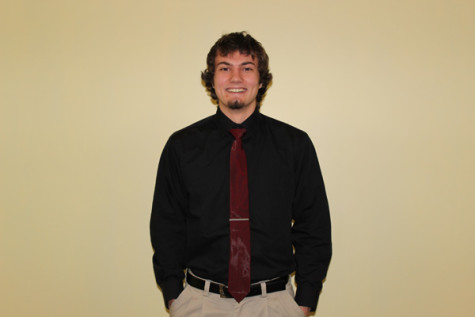A few years ago, incoming students received pre-made fall schedules without any of their own input. If they ended up having a bad semester, at least they got to choose their own classes in the spring.
This changed during the 2011 summer, when the Academic Success Center staff began implementing a new survey-like system that enabled undeclared students to have a say in their first semester’s classes.
Katherine Kinsinger said the staff collaborated with the Information Technology staff to create the new program.
“Our collaboration with IT has allowed us to develop a variety of creative data-management systems that assist us with tracking students.”
Database-management systems are complex programs created to file information and make it easier to access particular pieces of information in the future, using different categories and options to sort and individualize the data.
These online programs are listed as “Advising & Scheduling Assistants.” While using these modules, students answer open-ended questions about their academic strengths and preferences.
Students also rank a list of preferred classes to take in the fall.
Kinsinger said these programs help introduce first-year students to the majors and classes available through general-education courses.
“(Our staff members) use this feedback to build course schedules that correspond with advisees’ strengths and interests, and represent general-education requirements.”
Kinsinger said, since the program’s start, the average of undeclared students’ grade-point averages have increased. This is an increase from a 2.55 average in 2011 to 2.8 this fall.
“This outcome stands to reason—students are more motivated and invested in classes that correspond with their interests,” she said. “It also connects them in that first semester with classes in potential majors.”
Sophomore Nicole Gross was undeclared, entering her freshman semester. She said she did not take the survey because she was not aware such a thing existed.
“I don’t remember it being advertised or getting an email about it.“
She said the survey sounds like a good idea, and, if it is better advertised, it could be effective.
Kinsinger said there have been changes this year, adding to the program’s functions.
“This past year, we have updated the Undeclared Advising System to allow students to schedule appointments through the Campus Services link and for advisers to take online notes about our interactions with students.”
Kinsinger said the program now also provides to-do lists that have steps students may take in order to gravitate toward a particular major or explore possibilities.
“(The list) could include tasks such as scheduling with Real World Career Services, job shadowing or completing research.”
Kinsinger said the program has helped students to enter appropriate majors more quickly, easily and comfortably.
“It seems counterintuitive to think that technology allows us to get to know our students better, but that is what has occurred with this online system.”

